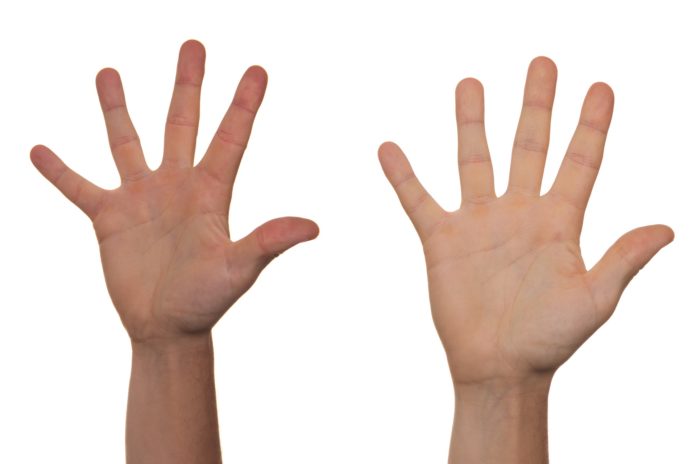BY: Aamir Shamsi
We go about our lives performing good and charitable acts whether they are listening to our parents, getting homework done on time, giving donations, or helping our friends.
Some people do good deeds because they have a good-natured soul, some for reputation, and others for the reward and pleasure of Allah(ﷻ). As Muslims, we must be able to classify what a good deed entails and understand what makes our good deeds different from those of others.
If a believer does a good deed, it cannot islamically be classified as a good deed (ie. rewardable by God) unless it is done for the sake of Allah(ﷻ). Why? Because it depends on whose classification by which you are labelling that deed as good. If it is by your own interpretation or societys that this deed is good, then by those standards, the deed is good. However, the reward for that deed is with them and not Allah(ﷻ).
You cannot expect a reward from someone if you are playing by someone elses rules. For example, winning the 2nd Football Division will not get you any reward for winning the Football World Cup, as you are in a different competition and playing against different opponents. Similarly, you cannot receive reward from Allah(ﷻ) for any deed unless the basis of this deed being good stems from what Allah has told you. Your intention should be that you are doing it because He commanded it for His sake.
Therefore, every deed is worthless for the next world and will not benefit us after we die until it is given value by purifying our intentions for the sake of Allah(ﷻ), as our sole purpose in life is His worship.
But what does it mean to do something for the sake of Allah? This is a question that I had difficulty answering, but after reading and researching, I came to the understanding that it must be doing that which He has commanded or encouraged in accordance with Islamic laws, remembering Him and His blessings in that deed, while being grateful for His mercy. The term ibadah is often incorrectly translated as worship when in fact it means submission, obedience, love and devotion to Allah(ﷻ).
Note that our sole purpose of worshipping Allah does not mean we take away our desires and wants from the equation. It is not wrong to want something for yourself as long as it fits the criteria above. Therefore, every act can become a form of worship and be considered a good deed, from sleeping and eating to enjoying the company of friends and family. Such is the beauty of our deen that we can be rewarded at all times of the day for doing what we love.
The next question would be: why should everything be for His sake? The answer is simple. Everything in this dunya belongs to Him, even our own flesh and body. We do not own or have power over anything, so how can we go against the rules of the One who gave us this life and in whose control is all that exists? It is remarkable how we are even forgiven for our many transgressions. SubhanAllah.
Furthermore, just as we thank those who have helped us, how can we not do the same for the One Who created us, Who continues to sustain us and make everything possible, from our breathing to our accomplishments?
If our deeds are not for His sake, not only are they useless, as explained above, but they are potentially punishable as they may be a sign of selfishness and arrogance.
Some may argue that we should not be doing good deeds for our own benefit of Allahs reward. However, another beauty of Islam is that we cannot separate doing good deeds and wanting to gain reward, as they are one and the same. By abiding by His laws and doing everything for His pleasure with the correct intentions, we will automatically be rewarded, InshaAllah.
Just as there are three different levels of faith: Islam (submission to Allah), Iman (belief in Allah) and Ihsan (perfection in worship), we can split good deeds into different levels accordingly. At the lowest level, one would be doing it because we are commanded to do so, and at the highest level, one would be doing it to please Allah(ﷻ). The more good deeds we do, the closer we become to Allah(ﷻ). So the natural progression is that we move from obeying Allah(ﷻ) out of subservience and wanting to gain reward to intrinsically believing Allahs laws to be correct to finally doing it out of love for Allah(ﷻ). Each step builds on the previous: from selfish to selfless. That is the purest form of ibadah, and that is our goal, InshaAllah.
Doing good deeds for the intention of getting reward is not necessarily a bad thing because we sometimes need an incentive or encouragement to do good. The benefit is not worldly so the mind-set is seeking a good Akhirah, which is a component of our purpose and acts as a stepping stone to the next level of faith. However, to attain even the most basic of these levels of faith, our deeds have to be for the sake of Allah(ﷻ).
And the best way to achieve this is to constantly re-check and re-evaluate our intentions. It may be a long and arduous process but it is one that will either make you or break you.
(NOTE: If you want to build a strong and powerful relationship with Allah, check out Islamia TV, where you can watch Islamic speakers from across the globe deliver inspiring and motivational courses. Learn more at www.islamia.tv.)





















